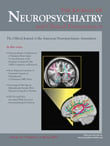A Comment on “Exertion” After Sports-Related Concussion
SIR : The Concussion in Sport (CIS) group 1 , 2 recommended that athletes with concussions undergo complete rest and be asymptomatic prior to beginning any rehabilitative therapy program. CIS recommended that concussed athletes avoid any exertional physical activity after a sports-related concussion, as such activity can reactivate and/or exacerbate the symptoms of concussion. A stepwise rehabilitation program is recommended, with successful completion of each graduated step being a prerequisite for transition to the next, more intensive activity level. The initial CIS statement in 2002 focused on physical exertion (e.g., walking, stationary cycling, weight training, running, skating), while the second CIS position paper, in 2005, added cognitive exertion as a potentially aggravating factor postconcussion. I report two clinical cases of concussed professional athletes whose recovery from a sports-related concussion was probably complicated by exertional activity typically not considered “exertional”—sexual behavior.
Case Report
A 21-year-old hockey player sustained a concussion in a fight during a game. There was no loss of consciousness or amnesia; immediate symptoms included headache, dizziness, nausea, blurred vision, and a feeling of “fogginess” for several days. His score on the Post-Concussion Syndrome (PCS) scale was 23, with a preseason baseline PCS score of 2. He was removed from the game and did not return to play. His concussion history included one concussion 3 years prior with no loss of consciousness or amnesia and complete recovery after 2 weeks. The athlete was advised not to engage in any exertional activities (physical or cognitive). The concussive symptoms dissipated within a week, and the Athletic Trainer began him on a rehabilitative program of stationary cycling. Stationary cycling led to a recurrence of symptoms, so a return to complete rest and restriction from physical and cognitive exertion was recommended. One week later the athlete was again asymptomatic. He underwent neuropsychological testing, with results being consistent with his preseason baseline testing. MRI of the brain was reported as normal, and neurological examination was benign. He began light aerobic activity on a Wednesday, with no recurrence of symptoms. On Friday his activity level was increased from stationary cycling to skating, and he remained symptom free.
However, upon reporting to practice the following Monday, the athlete complained of a recurrence of symptoms (PCS score of 25). He denied any unusual or atypical exertional activity during the weekend to the athletic trainer. Careful questioning, however, revealed that his girlfriend had visited that weekend and that they had engaged in sexual activity on several occasions. He was placed on complete rest once again and advised not to have any sexual activity. His concussive symptoms resolved by the following week. He successfully completed the graduated rehabilitative protocol without any recurrence of symptoms and was cleared for return to play. His recovery was subsequently complete and uneventful.
Case Report
A 25-year-old hockey player with a negative concussion history sustained a concussion in a game when he was elbowed in the back of the head by an opponent and then hit the boards with his head. There was no loss of consciousness or amnesia. Immediate symptoms included headache, “seeing stars,” photophobia, phonophobia, and ataxia. He was evaluated by a physician and was cleared to return to play in the same game. Upon returning to the ice, his symptoms recurred quickly and he was unable to complete the shift; he was then removed from the game. Two days later, his score on the PCS was 12 (his preseason PCS baseline score was 1). Symptoms included headache, fatigue, photophobia, phonophobia, feeling slowed down, and sleeping more than usual. He was instructed to avoid physical and cognitive exertional activities for a week. Brain MRI was normal and neurological examination was negative. He was evaluated again a week later, with a PCS score of 1 (sleeping more than usual). He reported however, that four days after the injury he and his wife had initiated a sexual interaction but that during the activity he “saw stars” and was unable to continue the sexual encounter. His performance on neuropsychological testing 12 days after the concussion was consistent with his preseason baseline testing, and the athletic trainer began him on a graduated rehabilitation program. He tolerated stationary cycling without difficulty but experienced a recurrence of symptoms when he began skating. He was again withheld from all exertional activity for a week and was then once again asymptomatic (PCS score of 0). He abstained from sexual activity, completed the graduated rehabilitative program, and returned to play without any recurrence of symptoms.
Comment
Sexual behavior can be an (overlooked) exertional activity, and may need to be considered by sports medicine professionals in their operational definition of exertional physical activity. Athletes may need to be cautioned about the potentially deleterious effects of sexual activity during the rehabilitative phase of a sports-related concussion.
1. Aubry M, Cantu R, Dvorak J, et al: Summary and Agreement Statement of the 1st International Symposium on Concussion in Sport, Vienna, 2001. Clin J Sport Med 2002; 12:6–11Google Scholar
2. McCrory P, Johnston K, Meeuwisse W, et al: Summary and Agreement Statement of the 2nd International Conference on Concussion in Sport, Prague, 2004. Br J Sports Med 2005; 39:196–204Google Scholar



